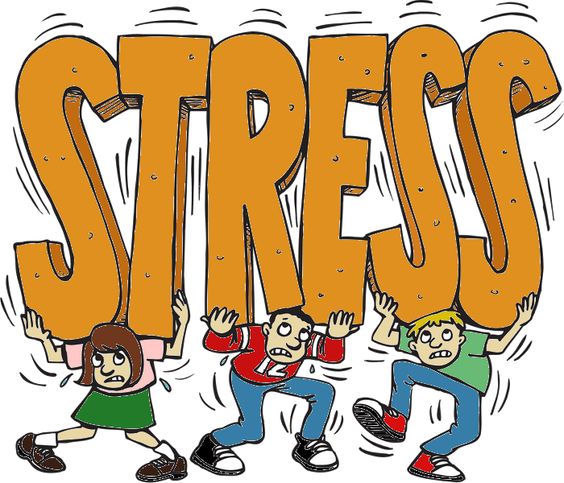Stress Management & Focus Boost: Essential Tips for Success
As a busy professional juggling work, family, and personal responsibilities, I know all too well the toll that stress can take on our focus and productivity. The constant demands of modern life can leave us feeling overwhelmed, scattered, and struggling to stay on top of our game. But what if I told you that there are proven strategies to manage stress and enhance your cognitive performance?
In this comprehensive guide, we’ll explore a range of techniques and practices that can help you reclaim your mental clarity, boost your focus, and unlock your full potential. From the physiological effects of chronic stress to the power of mindfulness meditation, we’ll dive deep into the science behind these solutions and provide you with the tools to transform your daily life.
Key Takeaways
- Understand the impact of stress on cognitive function and focus
- Discover the benefits of incorporating mindfulness meditation into your routine
- Learn effective strategies for incorporating regular exercise to alleviate stress and improve focus
- Prioritize sleep and optimize your nutrition to enhance cognitive performance
- Implement time management techniques to achieve a healthier work-life balance
Understand the Impact of Stress on Focus
Stress can have a profound impact on our ability to maintain focus and cognitive clarity. When we experience chronic stress, our bodies undergo physiological changes that can significantly impair our mental performance.
Physiological Effects of Chronic Stress
One of the primary consequences of prolonged stress is the elevated production of cortisol, a hormone that plays a crucial role in the body’s stress response. Prolonged exposure to high cortisol levels can lead to a range of physiological effects, including:
- Difficulty in concentration and decision-making
- Impaired memory and learning
- Reduced brain plasticity, which can hinder our ability to adapt and solve problems
Cognitive Consequences of Impaired Focus
When our focus is compromised due to stress, the cognitive consequences can be far-reaching. Stress can negatively impact our mental clarity, making it challenging to process information effectively, retain important details, and maintain a clear, rational thought process. This, in turn, can lead to:
- Decreased productivity and performance
- Difficulty in making sound decisions
- Reduced problem-solving capabilities
Recognizing the impact of stress on our focus and cognitive performance is the first step in developing strategies to manage it effectively. By understanding the physiological and cognitive consequences of chronic stress, we can take proactive measures to protect our mental well-being and enhance our overall productivity and success.
Mindfulness Meditation: A Powerful Stress-Buster
In today’s fast-paced world, it’s no secret that stress can take a toll on our mental clarity and focus. However, there’s a powerful antidote to this challenge: mindfulness meditation. This ancient practice has gained widespread recognition for its ability to alleviate stress and promote mental well-being.
Mindfulness techniques, such as breath awareness exercises and body scans, can help you cultivate a calm and centered mindset. By tuning into the present moment and letting go of distracting thoughts, you can experience a profound sense of mental clarity and inner peace. These stress reduction practices can be seamlessly incorporated into your daily routine, empowering you to navigate the demands of life with greater ease and focus.
One of the key benefits of mindfulness meditation is its ability to enhance mental clarity exercises. By training your mind to stay present and focused, you can improve your concentration, decision-making, and problem-solving abilities. This, in turn, can lead to increased productivity, creativity, and overall mental performance.
Integrating relaxation practices like mindfulness meditation into your lifestyle can have a profound impact on your well-being. Not only can it help you manage stress more effectively, but it can also contribute to improved sleep, better emotional regulation, and a greater sense of inner calm. Embracing this transformative practice can be a game-changer in your journey towards a more balanced and focused life.
“Mindfulness is a way of befriending ourselves and our experience.” – Jon Kabat-Zinn
Ready to unlock the power of mindfulness meditation? Explore the various mindfulness techniques available and find the ones that resonate most with you. Commit to a regular practice, and witness the remarkable changes it can bring to your stress levels, focus, and overall mental clarity.

Incorporate Regular Exercise into Your Routine
Integrating regular exercise into your daily life can be a powerful strategy for managing stress and enhancing your focus. Whether it’s aerobic activities or strength training, making fitness a priority can yield remarkable benefits for your mental clarity and cognitive performance.
Aerobic Activities for Stress Relief
Engaging in aerobic exercises, such as running, swimming, or cycling, can be a fantastic way to alleviate stress and promote relaxation. These activities stimulate the release of endorphins, the body’s natural feel-good chemicals, which can help counter the negative effects of stress. Additionally, the rhythmic movements and increased heart rate associated with aerobic exercise can induce a state of mindfulness, allowing you to temporarily escape the worries of daily life.
Strength Training for Mental Clarity
Incorporating strength training into your routine can also contribute to improved mental clarity and cognitive performance. Resistance exercises, like weightlifting or bodyweight workouts, have been shown to enhance brain function by increasing blood flow and oxygen delivery to the brain. This, in turn, can lead to better decision-making, improved problem-solving abilities, and enhanced focus, all of which are crucial for managing stress and boosting productivity.
Whether you prefer the cardiovascular benefits of aerobic activities or the mental sharpness derived from strength training, the key is to find an exercise regimen that you enjoy and can incorporate consistently into your lifestyle. By making physical activity a regular part of your routine, you can unlock the powerful stress-relieving and focus-enhancing benefits it offers.
How to Manage Stress and Improve Focus
Navigating the demands of modern life can often feel overwhelming, leaving us feeling stressed and struggling to maintain focus. But fear not – there are proven strategies to effectively manage stress and boost your cognitive performance. In this section, we’ll explore a comprehensive set of techniques to help you strike a healthy work-life balance and maximize your productivity.
One of the key stress management techniques is to prioritize self-care. This includes incorporating regular exercise into your routine, as it has been shown to have a profound impact on both physical and mental well-being. Engaging in aerobic activities, such as brisk walking, jogging, or cycling, can help alleviate stress by releasing endorphins and improving mood. Additionally, strength training exercises can contribute to enhanced mental clarity and focus.
Another effective stress management technique is the practice of mindfulness meditation. By training your mind to stay present and focused, you can learn to manage the physiological and cognitive effects of stress, ultimately improving your ability to concentrate and be productive.
To further enhance your focus and work-life balance, consider implementing time management strategies, such as effective prioritization techniques and eliminating time-wasters and distractions. By taking control of your schedule and minimizing interruptions, you can optimize your cognitive performance and achieve a healthier, more balanced lifestyle.
“Stress management and focus improvement go hand-in-hand. By addressing the root causes of stress and implementing proven techniques, you can unlock your full potential and thrive in all aspects of your life.”
Remember, managing stress and improving focus is an ongoing journey, but by embracing these proven strategies, you can unlock a new level of productivity, well-being, and work-life harmony.
Prioritize Sleep for Optimal Cognitive Performance
In the quest for enhanced focus and mental clarity, the often-overlooked key is the importance of prioritizing sleep. Quality sleep plays a vital role in supporting cognitive performance, memory consolidation, and overall brain function. By understanding the critical connection between sleep, focus, and cognitive abilities, we can unlock the path to enhanced productivity and success.
Establishing a Consistent Sleep Schedule
Maintaining a consistent sleep schedule is essential for optimizing cognitive performance. When we adhere to a regular sleep-wake cycle, our body’s internal clock, known as the circadian rhythm, can function at its best. This rhythm regulates various physiological processes, including the release of hormones that influence alertness, mood, and mental clarity.
- Aim for 7-9 hours of sleep per night, as this range is recommended for adults to support optimal cognitive function.
- Establish a consistent bedtime and wake-up time, even on weekends, to maintain a stable sleep-wake pattern.
- Create a sleep-conducive environment by keeping the bedroom cool, dark, and quiet, and avoiding the use of electronic devices before bedtime.
By prioritizing a consistent sleep schedule, you can enhance your cognitive performance, improve mental clarity, and foster a healthy sleep importance for focus.
“Sleep is the golden chain that ties health and our bodies together.” – Thomas Dekker
Consistently maintaining a consistent sleep schedule is a powerful tool in optimizing your cognitive performance and achieving greater mental clarity. Prioritizing sleep is a crucial step towards unlocking your full potential and maintaining a healthy, productive lifestyle.
Nutrition and Hydration for Enhanced Focus
When it comes to maintaining mental clarity and boosting productivity, your dietary choices and hydration habits play a crucial role. By understanding the impact of nutrition and proper hydration on cognitive performance, you can unlock the key to enhanced focus and improved mental productivity.
Certain nutrients have been shown to support brain function and cognitive abilities. For instance, omega-3 fatty acids found in foods like fatty fish, walnuts, and flaxseeds can help improve memory and focus. Antioxidants from fruits and vegetables can also protect the brain from oxidative stress and improve overall cognitive performance.
- Incorporate more leafy greens, berries, and nuts into your diet to boost your nutrition for focus.
- Ensure you’re staying hydrated by drinking plenty of water throughout the day. Proper hydration for cognitive performance can enhance mental clarity and productivity.
“Optimal nutrition and hydration are essential for maintaining mental clarity and achieving peak productivity.”
In addition to a balanced diet, it’s crucial to stay adequately hydrated. Dehydration can lead to fatigue, headaches, and difficulty concentrating, all of which can impact your overall cognitive performance. Make a conscious effort to sip water regularly and avoid sugary or caffeinated beverages that can contribute to dehydration.
By incorporating the right nutrition and maintaining proper hydration, you can unlock the full potential of your brain and achieve the mental clarity and productivity you’ve been striving for.
Time Management Strategies for Work-Life Balance
Achieving a healthy balance between work and personal life can be a constant challenge in today’s fast-paced world. However, by implementing effective time management strategies, you can maximize your productivity and enjoy a fulfilling work-life balance. Let’s explore some proven techniques to help you manage your time and stay focused on what truly matters.
Effective Prioritization Techniques
Prioritizing your tasks is crucial for ensuring you focus on the most important and high-impact activities. Implement the Eisenhower Matrix, which categorizes your to-do list into four quadrants: urgent and important, important but not urgent, urgent but not important, and neither urgent nor important. Dedicate your time and energy to the tasks in the first two quadrants, while minimizing or delegating the others.
Eliminating Time-Wasters and Distractions
One of the biggest obstacles to productivity is the abundance of distractions in our digital age. Identify and eliminate time-wasters, such as excessive social media scrolling, unnecessary meetings, or constantly checking email. Implement tools and techniques to limit your exposure to these distractions, such as setting dedicated times for checking email or using browser extensions to block certain websites.
By incorporating these time management strategies into your daily routine, you can reclaim control over your schedule, prioritize your most important tasks, and strike a healthier balance between your professional and personal life. Ultimately, this will lead to increased productivity, reduced stress, and a more fulfilling work-life experience.
Relaxation Techniques for Stress Reduction
Amid the hustle and bustle of daily life, it’s crucial to incorporate relaxation techniques into your routine. These stress reduction practices can help you regain mental clarity and focus, allowing you to tackle your tasks with renewed energy and efficiency.

Deep Breathing Exercises
One of the most effective relaxation techniques is deep breathing. This simple exercise can be done anywhere, anytime, and has a profound impact on both your physical and mental well-being. By taking slow, deep breaths, you can activate the parasympathetic nervous system, leading to a state of calmness and improved focus.
Progressive Muscle Relaxation
Another powerful relaxation technique is progressive muscle relaxation. This practice involves systematically tensing and releasing different muscle groups in your body, helping to release physical tension and mental stress. By consciously relaxing your muscles, you can achieve a deeper sense of tranquility and mental clarity.
Incorporating these relaxation techniques into your daily routine can have a significant impact on your stress levels and overall cognitive performance. Whether you opt for deep breathing exercises or progressive muscle relaxation, making time for these stress reduction practices can help you maintain a healthy work-life balance and enhance your mental clarity.
“The greatest weapon against stress is our ability to choose one thought over another.” – William James
As we’ve explored throughout this article, managing stress and enhancing focus are vital for maintaining a healthy work-life balance and achieving peak cognitive performance. By understanding the physiological and cognitive impacts of chronic stress, you can now employ a range of effective strategies to regain control and boost your mental clarity.
From mindfulness meditation and regular exercise to optimizing your sleep, nutrition, and time management, this comprehensive guide has equipped you with the tools to manage stress and improve focus. By implementing these holistic approaches, you’ll be empowered to thrive in both your personal and professional life, unleashing your full potential.
Remember, the journey to better stress management and enhanced focus is an ongoing process. Remain dedicated to your well-being, and continue to explore and experiment with the techniques that resonate most with you. With consistent practice and a commitment to self-care, you’ll unlock the keys to unlocking your optimal cognitive performance and achieving your goals.
FAQ
What are the physiological effects of chronic stress on focus?
Chronic stress can lead to increased cortisol levels, which can have adverse physiological effects, such as impaired cognitive function, difficulty concentrating, and reduced memory retention.
How can mindfulness meditation help manage stress and improve focus?
Mindfulness meditation practices, such as breath awareness exercises and body scans, can help cultivate a calm and centered mindset, reducing stress and enhancing mental clarity.
What types of exercise can help relieve stress and improve focus?
Both aerobic activities, like running or swimming, and strength training can contribute to stress relief and improved mental clarity, boosting cognitive performance.
How can establishing a consistent sleep schedule benefit focus and productivity?
Maintaining a consistent sleep schedule is crucial for optimal cognitive performance, as it supports mental clarity, memory retention, and overall productivity.
What nutritional and hydration habits can enhance focus and cognitive function?
Consuming nutrient-rich foods and staying hydrated can support cognitive function and mental clarity, ultimately improving your ability to focus and be productive.
How can effective time management strategies help achieve a healthy work-life balance?
Implementing time management techniques, such as prioritization and eliminating distractions, can help you maintain a healthy work-life balance and enhance your productivity.
What relaxation techniques can be used to reduce stress and improve focus?
Practices like deep breathing exercises and progressive muscle relaxation can help you manage stress, promote mental clarity, and improve your ability to focus.











